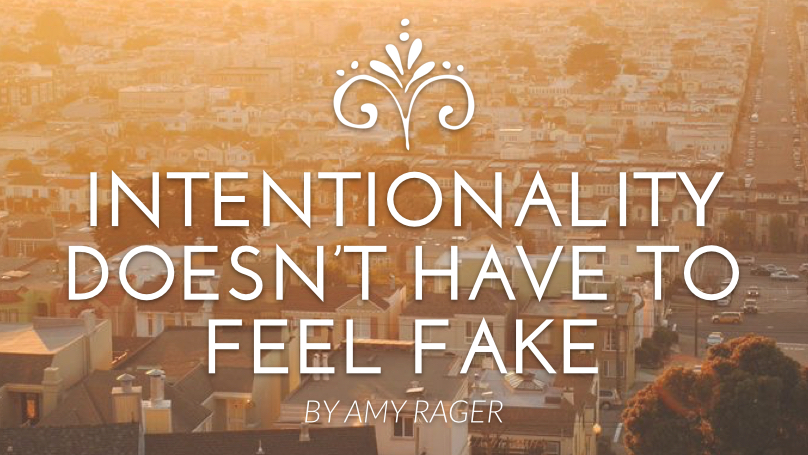Often when I encourage other women to engage with their neighbors, friends, and co-workers — in order to share the Gospel — those women get squirmy. Their eye contact drops and their hands start searching for something to fidget with.
These are Jesus-loving women who want others to know that Christ is the only way to have a relationship with their creator, so why would they balk at the idea of Gospel-motivated relationships? Mostly, they are afraid of being perceived as false or pushy with those around them. The question I hear a lot is: “But isn’t it shady to start a friendship with an agenda?”
I’ll be honest. Sometimes I feel that tension too. I conjure up the image of a direct sales lady who greets you when you move into the neighborhood with a warm loaf of bread and an offer to be the one-stop-shop for all your makeup needs. We all know she’s not interested in our friendship and it leaves a bad taste in our mouths.
It’s a good thing that none of us want to leave a bad taste in people’s mouths when we approach them with Jesus. But Gospel intentionality in relationships doesn’t have to look that way and it certainly doesn’t have to be forced or feel fake.
Here are a few easy steps you can take to ensure you don’t end up being pegged the neighborhood Jesus-peddler.
- Get to know those around you. Develop a genuine interest in them. Learn their story. Where are they from? What do they enjoy? What do they put their trust in? How have they been hurt? What belief systems are present in their life? This is a long-term process. You are investing time, energy, and emotion in the people God has placed in your life and they will take notice. Listening is counter-cultural.
- Pray for those you are investing in. Pray that God would align your heart and desires for them with His heart and His desires. Ask that God would give you pure motivations for sharing the Gospel and that the conversations you have would lend themselves to openness and gospel opportunities.
- Be honest about who you are and what you are about. Don’t shy away from reciprocating the conversations you are having. When your new friend shares an influential moment in her life when her mother walked away at age 8, share a struggle from your past and — from a place of honesty and vulnerability — how God brought you through. Or when you are able to celebrate with someone who got a promotion you wanted, explain to your befuddled friend that you have faith that God has a plan and will always provide for you. Use these moments to point to Christ. You don’t have to invent them, they will come.
But let’s put some scripture with this. We have precedence for initiating relationships. 1 John 4:19 says, “We love because he first loved us.” God loved us first. He initiated our entrance into his family. He pursued us, cared about us and sent His Son to die for us.

And that doesn’t apply only to those who are currently believers. God already loves your neighbors, your colleagues, your friends. He’s already pursuing them. Let’s step into that and move into the model God has set by taking the first step in relationships. When you follow through and begin to know people and ask God to help you love them, you will find that your concern for their soul trumps your concern for how you are perceived. Those Gospel conversations won’t seem so scary when you compare it to the thought of someone you care about remaining separated from God.
So, dive in. Make a friend. Get to know them. Love them like Jesus and see if that doesn’t compel you to lead them to Him.
What would you add to encourage others towards initiating authentic relationships with those who don’t know Christ?
 Amy is the wife of Barry Rager and the mother of four small children. Amy served alongside Barry while he pastored two established churches before they relocated from rural Kentucky to inner-city Indianapolis to plant New Circle Church. Amy enjoys reaching out to her neighbors, discipling women, serving her new church family and learning the in’s and out’s of her city.
Amy is the wife of Barry Rager and the mother of four small children. Amy served alongside Barry while he pastored two established churches before they relocated from rural Kentucky to inner-city Indianapolis to plant New Circle Church. Amy enjoys reaching out to her neighbors, discipling women, serving her new church family and learning the in’s and out’s of her city.
Published May 18, 2015



